How chess is transforming lives: 2024 #SocialChess Conference in Budapest
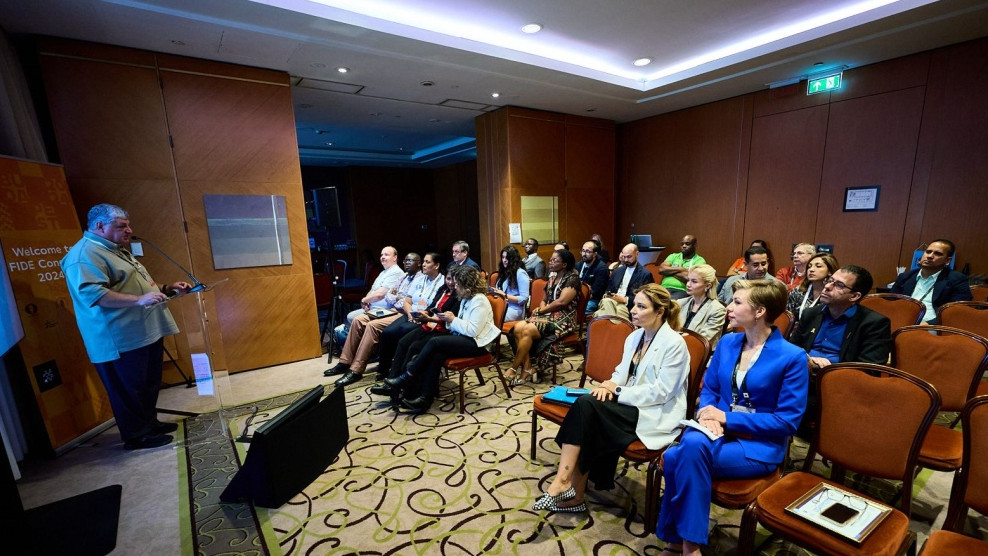
On September 21, 2024, Budapest hosted the #SocialChess conference, a gathering of FIDE officials, Social Commission members, and project leaders dedicated to leveraging chess for societal good. The event underscored FIDE’s commitment to using chess as a transformative tool across various social initiatives worldwide, with the announcement of 2025 being declared as the “Social Chess Year.” The conference was opened by Dana Reizniece-Ozola, Deputy Chair of the FIDE Management Board, who stressed the importance of collective action in bringing positive change through chess. “This meeting allows us to share ideas, updates, and plans for the future,” she said. Reizniece-Ozola invoked a poignant quote from Imants Ziedonis, a renowned Latvian poet: “You can gain by taking, but you can also gain by giving. And those things that you give away, nobody can take from you.” She suggested this could serve as a guiding motto for the Social Commission, affirming that “this is just the beginning. We are helping people change lives with a wonderful tool we have in our hands—chess.” 2025: The Year of Social Chess André Vögtlin, Chair of the FIDE Social Commission, introduced the central theme of 2025 as the “Year of Social Chess.” In line with FIDE’s 10 goals for the next 100 years, he emphasized that social impact stands as a crucial objective. Vögtlin invited federations, organizations, and individuals involved in social outreach through chess to collaborate with FIDE in advancing this mission. Project highlights Several major initiatives spearheaded by the Social Commission were showcased during the conference, revealing the profound influence chess can have in different social contexts. – Chess for Protection: Sonja Johnson, a FIDE Social Commission member, presented updates on this initiative, particularly its work in Kenya’s Kakuma refugee camp. Partnering with UNHCR, FIDE has been teaching chess to children, offering them a valuable educational and social tool. Despite the camp’s challenging conditions, Johnson reported that 1,350 primary school students and 350 secondary students are now involved in the program. She also shared the success of increasing female participation and the inspiring story of students transitioning into facilitators. A documentary is in production to raise awareness and attract new partners for the project’s future growth. The initiative is also set to expand to the Americas, including the US-Mexico border and Panama. – Chess for Freedom: Mikhail Korenman, FIDE Social Commission Councillor, reported on the success of this project aimed at rehabilitating inmates through chess. Initially launched at Cook County Jail in the U.S., the project has shown significant behavioral improvements among inmates who participated in chess coaching for six months or longer. Korenman shared plans for expansion, including increasing the number of participating countries and correctional institutions, with aspirations to elevate the current intercontinental tournament to a full-fledged world championship for inmates. – Infinite Chess: Maria Tamkovich, the project’s coordinator, delivered a presentation on using chess to assist children with ASD. Since its inception in 2021, the project has grown to involve 19 countries. A handbook for teaching chess to children with ASD, now available in multiple languages, has been a crucial resource. Tamkovich also provided insights from recent research, highlighting chess’s positive impact on cognitive and behavioral development in children with ASD. Testimonials from project facilitators and therapists accompanied her presentation. – Chess for elderly and Chess for life: PD Dr. Prabhita Urwyler, who leads this initiative, discussed how chess can play a vital role in improving cognitive health and social engagement among the elderly as well as among those suffering from addiction and addictive behaviour. Dr. Urwyler explained that the project targets retirement homes, community centers, and care facilities across different countries, with a focus on non-competitive, social chess. Examples from Turkey, Switzerland, Spain, and Sweden illustrated how cultural considerations are integrated into each program. “Healthy Chess” in Menorca and Stockholm’s intergenerational “Let’s Play Chess for Everyone” program were particular highlights. The project also seeks to explore the therapeutic potential of chess in combating addiction, particularly in the context of substance abuse recovery. – Chess and Cancer (Project 2C): In one of the most moving sessions of the conference, Susana Gonçalves, co-founder of Chess2All, spoke about Project 2C, which brings chess to cancer patients. Launched in Portugal, this initiative aims to provide emotional support and cognitive stimulation to those undergoing cancer treatment. Gonçalves shared how chess trainers are specially trained to work with patients, ensuring the approach is both ethical and compassionate. The project plans to launch the Queen’s RISE initiative in March 2024, focused on supporting women with breast cancer through chess as part of their therapy. A unified mission for 2025 and beyond The final message of the conference was one of unity and action. As FIDE prepares for 2025, the Year of Social Chess, the call for global participation was clear: chess is not just a game but a powerful tool for social change. By connecting communities, empowering the vulnerable, and offering second chances, FIDE’s Social Commission is actively shaping a brighter future. Written by Milan Dinic Photos: Hungarian Chess Federation
45th Chess Olympiad: India dominates open; women’s event goes down to the wire
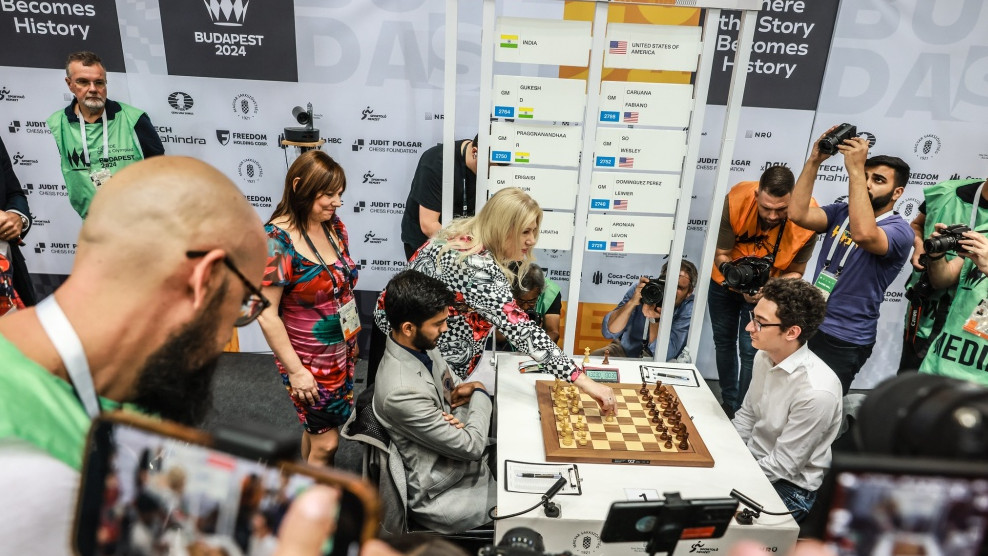
India is unstoppable! The crucial match of the Chess Olympiad, India vs. USA, ended in a 2.5-1.5 victory for India, marking their ninth win. The first ceremonial move in this important encounter was made by Hungarian legends Susan and Sofia Polgar. Wesley So opened the scoring for the USA by defeating Praggnanandhaa R, but this was merely a consolation for team USA. By the time this game ended, two prodigies of the Indian team, Gukesh D and Arjun Erigaisi, were already winning their games against Fabiano Caruana and Lenier Dominguez, respectively. Vidit Gujrathi secured a draw with Black against Levon Aronian. Gukesh was the first to finish the job, triumphing over Fabiano Caruana. Speaking about the game on the FIDE broadcast, Gukesh said: “It was crazy. He surprised me in the opening with his move order, and we reached an initially equal position. His problems started from Ne7.” Reflecting on the later stages of the game, he added: “Arjun was completely winning, so I thought even a draw would be fine, but I kept finding all the good moves.” Commenting on his own incredible performance at this Olympiad, he said: “I am glad, but the main thing was to perform as a team!” China defeated Uzbekistan in a close and tough match. Ding Liren was much better but could not convert his chances against Nodirbek Abdusattorov. Shamsiddin Vokhidov prevailed over Wang Yue, but China struck back with wins by Yu Yangyi against Javokhir Sindarov and Wei Yi against Nodirbek Yakubboev. China is now trailing India by two points. If India loses in the final round and China wins, the two teams will share first place. The tiebreaks will then decide the outcome, and although India has a much better tiebreak at the moment, there is still a slim chance China can prevail. Slovenia is a surprise of the tournament as they beat the Netherlands, thanks to Matej Sebenik defeating Benjamin Bok. Now, the team of Vladimir Fedoseev, seeded 27th, is in sole third place with 16 points and is facing India in the last round – an incredible achievement. The first move in the match between Hungary and Serbia was made by legendary Hungarian grandmaster Lajos Portisch. He played 1.e4 for Richard Rapport, and the leader of the Hungarian team didn’t take it back, as often happens, but started the game with this move. Unfortunately for the local fans, this inspiration didn’t convert into a match victory. A 2-2 draw means Hungary is in a big group of teams on 15 points sharing fourth place. Timur Turlov, President of the Kazakhstan Chess Federation and CEO of Freedom Holding Corp., made the first ceremonial move in the top women’s match in the presence of Mr. Abzal Saparbekuly, Ambassador of the Republic of Kazakhstan to Hungary. Kazakhstan, the sole leader in the women’s section, faced the mighty team of Georgia. With three games drawn, Alua Nurman saved the day for Kazakhstan. She held a draw, saving a losing position against Bella Khotenashvili on the fourth board, and secured a 2-2 tie in the match. Meanwhile, India beat China 2.5-1.5 thanks to Divya Deshmukh’s defeating Ni Shiqun. All other games ended in draws. Divya is having an amazing event. With 8.5 out of 10, she’s the main contender for individual gold on board three. After leading for most of the event, India stumbled with a loss to Poland and then a draw against the USA, but they are gaining momentum back. Before the final round, they are sharing first place with Kazakhstan. The fight for medals is very much open in the women’s section as the USA and Poland trail the leaders only by a single point. Position of the day: Javokhir Sindarov (Uzbekistan, 2677) – Yu Yangyi (China, 2703) Put yourself in Sindarov’s shoes. Where do you go, Kh1 or Kh2? Sindarov opted 30.Kh1 and this was a grave mistake. After 30…Nh5 31.Nf3 Ng3+ 32.Kh2 Nf1+ 33.Kh1 Ne3, Black’s position became totally winning. Instead, 30.Kh2 could keep the balance as Black has to deal with Nxf7 threat. Results of the top matches: Open: (17) India 2.5-1.5 USA (15)(15) Uzbekistan 1.5-2.5 China (15)(14) Hungary 2-2 Serbia (14)(14) Ukraine 2-2 Armenia (14)(14) Slovenia 2.5-1.5 Netherlands (13) Women: (14) Georgia 2-2 Kazakhstan (16)(15) India 2.5-1.5 China (14)(14) Poland 2.5-1.5 Germany (14)(14) USA 2.5-1.5 Ukraine (14)(14) Spain 2-2 Armenia (14)(14) Vietnam 1.5-2.5 Hungary (13) Top standings after 10 rounds: Open: 1. India – 192. China – 173. Slovenia – 16 Women: 1-2. India, Kazakhstan – 172-4. USA, Poland – 16 Full results: Chess-results.com – 45th Chess Olympiad Written by WGM Anna Burtasova Photos: Michal Walusza, Mark Livshitz, Maria Emelianova and Gergő Kapás See more Round 10 photos on FIDE Flickr Official website: chessolympiad2024.fide.com
45th Chess Olympiad: USA sets up clash with India; Kazakhstan grabs the lead in women’s event
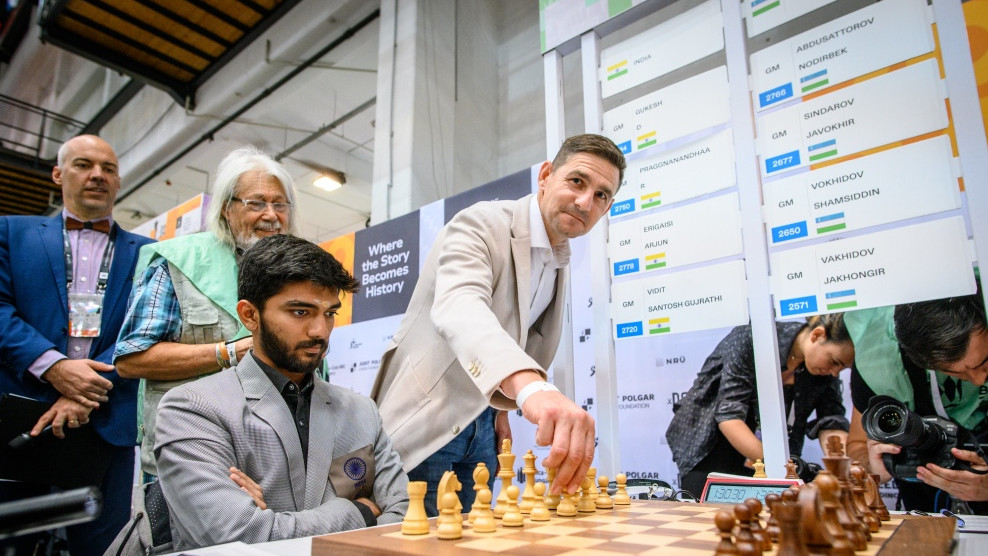
The highlight of the day was the game between Gukesh D and Nodirbek Abdusattorov on board one of the India vs. Uzbekistan match. Both young prodigies have impressive track records, competing for the individual gold medal on the top board. Gukesh had 6.5/7 with a 3085 performance rating, while Abdusattorov stood at 7.5/8 with a 3021 performance rating. The first ceremonial move was made by Zoltán Gera, a former professional Hungarian football player. Unfortunately, the game ended in an uneventful draw due to a threefold repetition on move 32. This set the tone for the whole match, as all other games were also drawn, resulting in a 2-2 tie. The result was disappointing for India, as Arjun Erigaisi missed a chance to score against Shamsiddin Vokhidov when the latter blundered on move 37. It was the case of mutual oversight, as Erigaisi also failed to find the winning continuation and played differently, missing his opportunity. Team USA triumphed over Hungary thanks to Leinier Dominguez’s defeating Sanan Sjugirov and leapfrogged their opponents in the tournament standings. We are now set for a thrilling USA vs. India clash in the penultimate round of the competition. If Fabiano Caruana’s team wants a shot at gold, they must do their best to win this match. China narrowly defeated Iran, with Wei Yi beating Amin Tabatabaei. The score could have been more convincing had Ding Liren converted a decisive advantage against Parham Maghsoodloo, but it was not meant to be. In round 10, China will face Uzbekistan in one of the key matches of the event. Vladimir Fedoseev, playing on the first board for Slovenia, achieved the seemingly impossible by defeating Magnus Carlsen in the endgame. During the live broadcast, Vladimir reacted to the commentators’ observation that they couldn’t lure a smile out of him: “It’s hard to smile after such a game, simply no emotions left.” Slovenia prevailed over Norway 3-1, practically shattering Norway’s hopes for medals. In the women’s section, the top match between Kazakhstan and Poland saw the ceremonial first move made by Tahir Taghi-Zadeh, Ambassador of Azerbaijan to Hungary, in the presence of Mahir Mamedov, FIDE Vice President and President of the Azerbaijan Chess Federation. The three games on the top boards ended in draws, leaving the outcome to be decided by the game between Alicja Sliwicka and Alua Nurman. Whoever won would secure victory for their team and lead the women’s event. Before move 40, things looked promising for Sliwicka, but after the time control, Black slowly outplayed her opponent. After an excruciating 86-move battle, 17-year-old Nurman gained the upper hand and pushed team Kazakhstan to the top of the standings. The match between former leaders India and the tournament’s #7 seed, USA, ended in a fighting draw. Gulrukhbegim Tokhirjonova defeated Vaishali R on the top board, and with draws on boards 2 and 4, the match looked promising for the USA. However, Irina Krush blundered in time trouble, and Vantika Agrawal seized her chance to level the score. India is now trailing the leader by one point. Position of the day: Arjun Erigaisi (India, 2778) – Shamsiddin Vokhidov (Uzbekistan, 2650) Black just terribly blundered with 37…Nd6-e8. White to play. With 38.Bxf7! White could have won this game, resulting in a match victory for India: 38…Qxf7 39.Qd4 Nf6 40.Qd8+ Qe8 41.Qxc7. Erigaisi missed this opportunity and played 38.Re3 instead. The game and the match ended in a draw. Results of the top matches: Open: (16) India 2-2 Uzbekistan (14)(13) USA 2.5-1.5 Hungary (14)(13) China 2.5-1.5 Iran (13)(12) Norway 1-3 Slovenia (12)(12) Armenia 2.5-1.5 Germany (12) Women: (14) Kazakhstan 2.5-1.5 Poland (14)(13) USA 2-2 India (14)(13) Ukraine 2-2 Armenia (13)(12) France 0.5-3.5 Georgia (12)(12) China 3-1 Turkiye (12) Top standings after 9 rounds: Open: 1. India – 172-4. USA, Uzbekistan, China – 155-9. Slovenia, Ukraine, Serbia, Hungary, Armenia – 14 Women: 1. Kazakhstan – 162. India – 153-11. China, Armenia, Poland, USA, Spain, Germany, Ukraine, Georgia, Vietnam – 14 Full results: Chess-results.com – 45th Chess Olympiad Written by WGM Anna Burtasova Photos: Michal Walusza, Mark Livshitz and Maria Emelianova See more Round 9 photos on FIDE Flickr Official website: chessolympiad2024.fide.com
FIDE 100 Awards make history
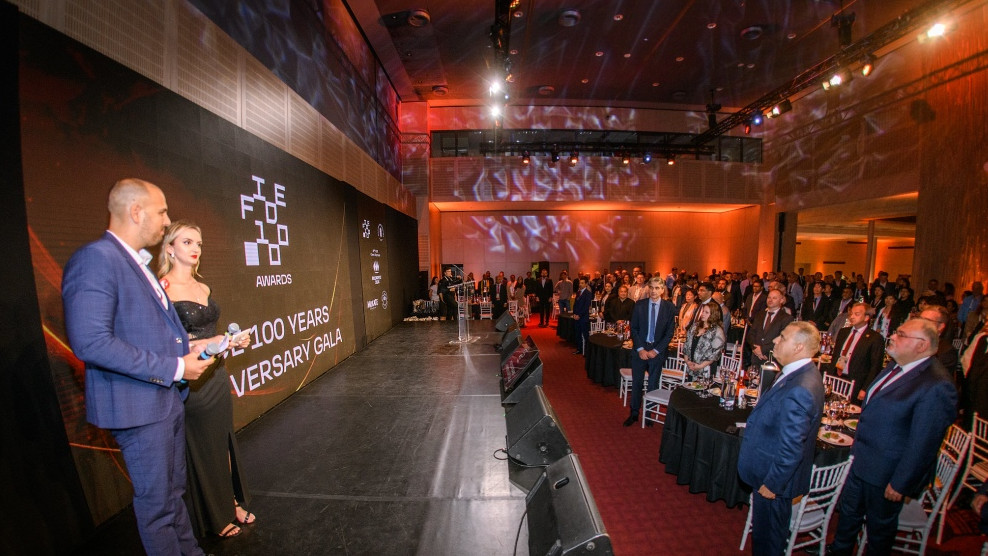
On the night of Round 8 at the FIDE Chess Olympiad, a dazzling event took place at the Intercontinental Hotel in Budapest. The chess gala, dedicated to the centenary of the International Chess Federation, celebrated the exceptional achievements and contributions of individuals, groups, and organizations within the chess community. Over the past century, chess has evolved and flourished, and this evening was all about honoring those who have made remarkable impacts on the game we love. After the FIDE anthem played, FIDE President Arkady Dvorkovich and FIDE Vice President Mahir Mammedov welcomed everyone to the gala. Mahir Mammedov said: “The first century of FIDE’s life has been full of remarkable events, great personalities, and memorable matches. For this, we must thank the founders of FIDE!” Following this introduction, the main event of the evening, the FIDE 100 Awards, commenced. Selecting the best of the best in their respective fields was no easy task, and a special panel of experts and professionals worked diligently on the selections. The jury made their decisions in 18 categories: Best Player – Man, Best Player – Woman, Best Team – Men, Best Team – Women, Best Book, Best Trainer, Best Trainer – Woman, Best Arbiter – Man, Best Arbiter – Woman, Most Memorable FIDE Tournament, Most Memorable Private Tournament, Social Impact, Advocate for Women in Chess, Best Educator, Best Photo, Best Social Media Influencer, Best Journalist, and Inclusivity. Each winner received a special FIDE Awards trophy with their name and the title of their nomination engraved on it. Additionally, there were eight special FIDE 100 medals from the FIDE President Arkady Dvorkovich honoring those who have significantly contributed to chess development throughout their careers. Let’s celebrate the winners one by one. Advocate for Women in Chess: Jean Michel Rapaire FIDE aims to increase the representation of women in chess, and each initiative supporting this goal is invaluable. Jean Michel Rapaire’s activities are widely known in the chess world. He has led a superstar women’s team to multiple European Club Cup victories and organized some of the most important women’s events, such as the Women’s Candidates, FIDE Grand Prix, and European Women’s Championships. Thanks to his efforts, Monaco has become the capital city of women’s chess. Social Impact: Chess for Freedom, Cook County Sheriff’s Office The award was presented to Mikhail Korenmann, Project Lead at the Cook County Sheriff’s Office. FIDE and the Cook County Sheriff’s Office (Chicago, USA) signed a cooperation agreement and launched the “Chess for Freedom” program in May 2021, aiming to use chess as a powerful tool for the reintegration of inmates. Initiated with an online conference and an exhibition tournament featuring four participating countries, it has now grown into a global movement involving almost 60 countries and more than 120 teams participating in the FIDE Intercontinental Online Championships for Prisoners. The project also includes a global conference and training programs carried out in hundreds of institutions worldwide. The Chess for Freedom project received the prestigious Anthem Awards in 2023. Best Educator: Abel Talamantez Abel Talamantez, a coach at Hamilton K-8 School in the USA, has been teaching chess in classrooms for 12 years. He uses the game as an educational tool to develop essential skills in children, such as grit, patience, resilience, and the ability to learn from mistakes. His goal is not only to help students improve their chess skills but also to equip them with life skills that contribute to their overall success. Abel Talamantez holds several prestigious titles, including Lead School Instructor (LSI) 2021, FIDE Instructor (2021), School Instructor (2021), and International Arbiter (2023). He has received numerous accolades for his groundbreaking work. Abel Talamantez emphasizes, “We fully believe that the success of our chess program is not about trophies and competitions, but about engaging the mind of the student and making learning fun.” Inclusivity: International Physically Disabled Chess Association (IPCA), International Braille Chess Association (IBCA), and International Chess Committee of Deaf (ICCD) Three chess organizations that are making a significant difference in promoting inclusivity in the sport were declared the winners. These FIDE-affiliated organizations are strong partners in organizing events for people with disabilities, including the 2023 Chess Olympiad for People with Disabilities. The awards were presented to IPCA President Andrei Gurbanov, IBCA President Jörgen Magnusson, and ICCD President Phillip Gardner. Best Trainer – Man: Vladimir Tukmakov A Ukrainian chess grandmaster and trainer, Vladimir Tukmakov truly shines in the realm of chess coaching. Under his guidance, the Ukrainian team achieved Olympic glory in 2004 and 2010. His coaching prowess also yielded numerous medals in European and World Team Championships, solidifying his reputation as one of the best captains and trainers in the world. His mentorship shaped the careers of top chess players like Anatoly Karpov, Viktor Korchnoi, and Anish Giri. Tukmakov is also the author of several chess bestsellers, and his insightful writings continue to inspire generations of chess enthusiasts worldwide. Best Trainer – Woman: Susan Polgar Susan Polgar achieved incredible success as a player before transitioning to a career as a trainer, where she has passed on her vast experience. She was the Women’s World Chess Champion from 1996 to 1999. At the age of 15, she became the top-ranked female chess player in the world. In 1991, she became the third woman to be awarded the title of Grandmaster. Throughout her career, she won eleven medals at the Women’s Chess Olympiad (4 gold, 4 silver, and 3 bronze). As a trainer, writer, and promoter, Polgar sponsors various chess tournaments for young players and heads the Susan Polgar Institute for Chess Excellence (SPICE) at Webster University. She also served as the Chairperson or co-chair of the FIDE Commission for Women’s Chess from 2008 until late 2018. Best Arbiter – Man: Andrzej Filipowicz Andrzej Filipowicz is one of the most fascinating personalities in the chess world. He has worn many hats: chess player, arbiter, organizer, editor, writer, and civil engineer specializing in steel structures. He is known for his strong personality, sharp intelligence, well-defined convictions, and
45th Chess Olympiad R08: India dominates open section, faces setback in women’s
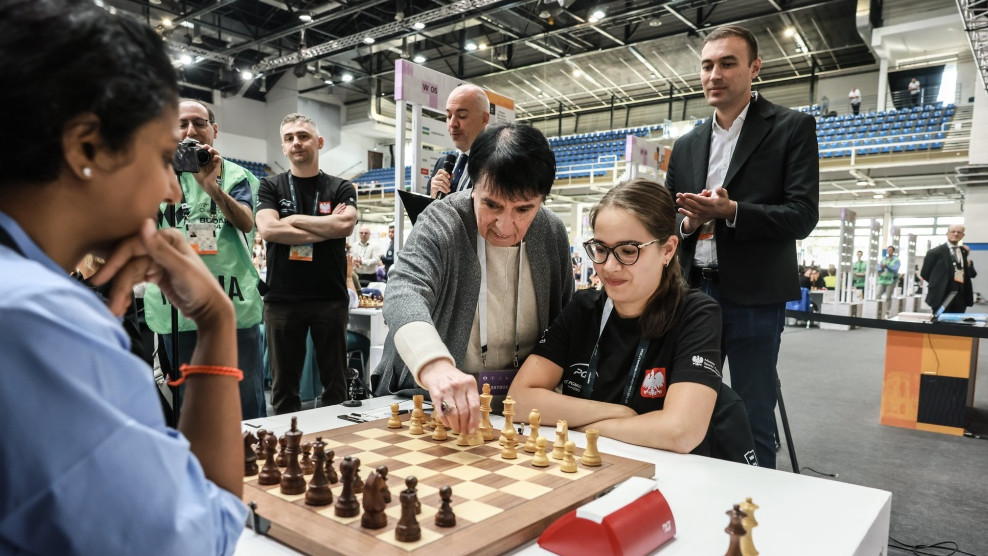
While the Indian team is dominating the open section, winning against Iran with an impressive 3.5-0.5 score in Round 8, their compatriots in the women’s competition experienced a setback. India women’s team suffered their first defeat at the hands of Poland. Poland struck with victories by Alina Kashlinskaya against Harika Dronavalli and Monica Socko against Vaishali R on the top boards. Divya Deshmukh, on board 3, bounced back with a win against Aleksandra Maltsevskaya. The pressure was on Vantika Agrawal, who found herself in a must-win situation. She had a winning position against Alicja Sliwicka, but after a blunder on move 56, Vantika let her advantage slip away and had to settle for a draw. Vantika’s disappointment was clear, but her teammate Divya Deshmukh, the best player on the team with 7/8, remained hopeful, saying to commentator Peter Svidler: “If we lose this, I think we will for sure bounce back.” The up-and-coming team of Kazakhstan narrowly defeated France in a match that was far from clear. The teams exchanged blows on the top boards: Assaubayeva defeated Daulyte-Cornette and Nurman won against Guichard for Kazakhstan, while Millet brought a point to France by beating Kamalidenova. It was up to Benmesbah to convert her advantage against Kairbekova to secure a draw in the match. However, it was not meant to be as Benmesbah let the advantage slip, and with a draw in this game, Kazakhstan shares the lead! India, Poland, and Kazakhstan jointly lead the women’s tournament with 14 match points each. The USA, Armenia, and Ukraine are trailing by one point. The USA won by a big score against Uzbekistan, as did Armenia against Mongolia, while Anna Ushenina clinched the victory for Ukraine against Hungary. The women’s tournament is set for intriguing final rounds! India is sweeping the field in the open tournament. The team hasn’t lost a single game so far. As Arjun Erigaisi won again (against Daneshvar, 2598), he is not only the best player on the team with 7.5/8 but also on his way to becoming a 2800+ player as he’s currently earning 14 points, elevating him to 2792! Gukesh D, who also won (against Maghsoodloo, 2723) and has 6.5/7, is gaining even more, 20 points, which currently translates to 2784 for him. In round 9, the amazing Indian squad is going to face Uzbekistan – a key match for the medals. Uzbekistan narrowly won against Serbia thanks to Nodirbek Abdusattorov’s excellent endgame technique in his game vs. Alexandr Predke. If the defending champions want another shot at the gold, they have to grit out a victory over India. Hungary is also following closely. In round 8, Benjamin Gledura secured the hosts’ victory over Armenia, defeating Robert Hovhannisyan while all other games finished in draws. The team of Richard Rapport and Peter Leko is eager to show their best on home soil, and so far their only loss was to India. In round 9, they will be put to the test by the tournament’s rating favorites, team USA. Position of the day: Maxime Lagarde (2598, France) Levon Aronian (2729, USA) The final position of Aronian’s game is quite spectacular. Levon chased the white king all the way from c1 to finally checkmate on f6. Check out the whole game: Lagarde – Aronian Results of the top matches: Open: (13) Iran 0.5-3.5 India (14)(12) Hungary 2.5-1.5 Armenia (12)(12) Serbia 1.5-2.5 Uzbekistan (12)(11) USA 2.5-1.5 France (11)China (11) 2.5-1.5 Romania (11) Women: (12) Poland 2.5-1.5 India (14)(12) Kazakhstan 2.5-1.5 France (12)(11) Hungary 1.5-2.5 Ukraine (11)(11) Georgia 2-2 Bulgaria (11)(11) Uzbekistan 0.5-3.5 USA (11) Top standings after 8 rounds: Open: 1. India – 16 2-3. Uzbekistan, Hungary – 14 4-6. China, USA, Iran – 13 Women: 1-3. India, Poland, Kazakhstan – 144-6. USA, Armenia, Ukraine – 13 Full results: Chess-results.com – 45th Chess Olympiad Written by WGM Anna Burtasova Photos: Michal Walusza, Mark Livshitz and Maria Emelianova See more Round 8 photos on FIDE Flickr Official website: chessolympiad2024.fide.com
10th Judit Polgar Global Chess Festival sets new records
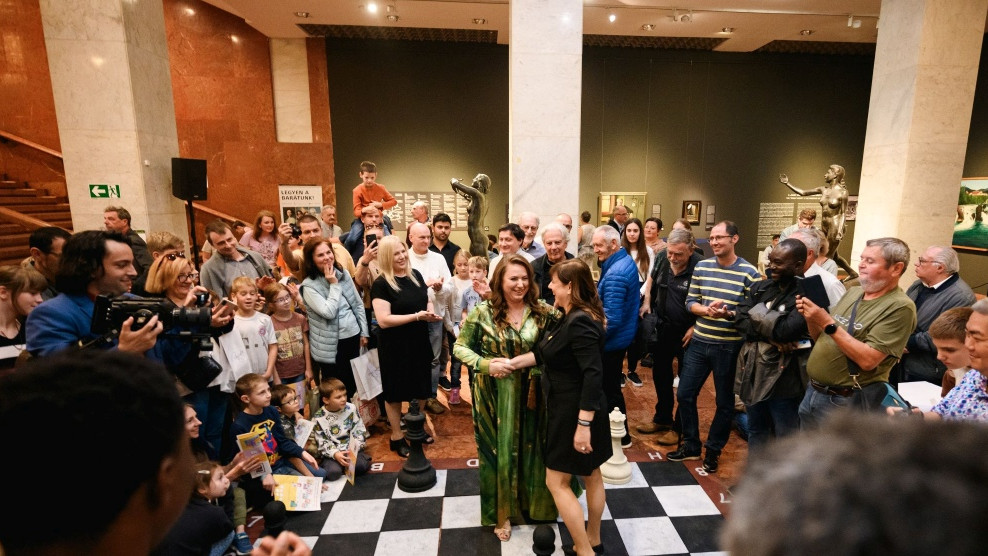
Inspiring chess programs over two days in three locations: The first day of the festival ended with a full house – over 6,000 people visited the Hungarian National Gallery on September 17. On the second day of the festival, the auditorium of the InterContinental Hotel was occupied by educational experts, while the Judit Polgár Chess Foundation stand in the BOK Hall was filled with chess fans. Judit Polgar’s jubilee Global Chess Festival set a new on-site attendance record: this year, the programs on the first day of the festival attracted more than 6,000 visitors to the Hungarian National Gallery, and over two days (September 17-18), more than a quarter of a million people joined the events, which could also be followed online, including the community chess simul and the 4th Educational Chess Summit. The audience had the opportunity to meet the Polgar family and this year’s festival patron, Ernő Rubik, and witnessed a groundbreaking Polgar vs. Polgar chess game. In addition to the scientific, artistic, and chess-related programs, a unique community chess simul and renowned figures from the chess world, Hungarian art scene, and sports champions ensured that visitors left the event feeling inspired. “This series of events is not just about chess. This year, we prepared over 20 programs that sparked the imagination of every age group, from 4 to 104. The audience got to see my Olympic medals displayed for the first time, as well as my favorite chess sets, and they could experience the adventure of the Chess Palace program, where the characters of this magic world came to life. Visitors were able to experience how versatile, fun and diverse chess can be,” said Judit Polgar, the best female chess player in history and founder of the Global Chess Festival. The audience celebrated with the Polgar family Those who visited the festival’s opening day in the Buda castle had the rare opportunity to meet the Polgar family members in person for the first time in many years at a joint book signing. In addition, guests could play chess with the Polgar sisters on a giant chessboard, where participants shaped the game with their ideas. The festival was one of those special occasions when, during the rest day of the Chess Olympiad, some participants also appeared among the audience, such as Swedish chess player and influencer Anna Cramling, and some even took on active roles. A true highlight was that the patron of the Global Chess Festival, Ernő Rubik, greeted the visitors at the National Gallery, and during the meet-and-greet, anyone had the opportunity to ask questions to the inventor of the Rubik’s Cube. At the two-day chess celebration, everyone found a program to their liking. Those who enjoy playful challenges could test their skills in the Rubik’s Cube Game, participate in the PolgarStarChessOlimpiko, try out robot programming thanks to the festival’s main sponsor, Morgan Stanley, or take part in an inspiring chess tournament. “We were thrilled to participate in this year’s Global Chess Festival with exciting and meaningful programs,” said Norbert Fogarasi, head of Morgan Stanley’s Budapest office, which has supported the event for six years. “It was especially rewarding to see how our colleagues inspired children through LEGO robot programming and how much interest the chess games with our chess masters garnered. Initiatives like this provide a great opportunity for Morgan Stanley employees to showcase their creativity and commitment. Through chess, we are glad to contribute to promoting strategic thinking, which is just as necessary at a global financial institution’s IT and analysis center as it is over the chessboard.” JuditPolgar vs. The World As a highlight of the festival, Judit Polgar played a simul against eight communities. Two of the friendly games ended in a draw: the “News Navigators,” a team of foreign and Hungarian journalists, managed to draw their game with the unexpected involvement and help of 9-year-old chess prodigy Bodhana Sivanandan, an Olympian representing England. The team of representatives from the deaf, hard of hearing, and visually impaired communities, known as the “Champions of Courage,” also agreed to a draw with Judit Polgar. The excitement peaked at the end of the simul, as most teams found themselves in time trouble. Zachary Saine (The Chess Nerd) and his community handled the pressure remarkably well, using the final seconds in a brilliant endgame to become the only community to defeat the chess legend. The community of Hungarian sport-legends lasted the longest, but after a creative and exciting game, they eventually conceded, as did the communities of Chess.com and ChessKid. The lesson of the simul was summarized by Ayelén Martinez, a representative of Chess.com, the world’s largest online chess community: “In chess, you usually play alone against your opponent. This community simul beautifully illustrates what Judit and the spirit of the festival stand for: chess brings us together, it connects us.” Chess revolution in education On the second day of the festival, at the 4th Educational Chess Summit, Hungarian and international experts demonstrated how chess can fundamentally reform education and its positive effects on both physical and mental health. Sebastian Siebrecht, a chess grandmaster and creator of the Fascination Chess program, has been organizing chess camps in German shopping malls for 22 years, where he teaches and inspires thousands of children weekly with his passion for the game. Mads Jakobsen, CEO of the Danish Scholastic Chess Federation, said that the country has been involved in chess in schools for 15 years and will open the world’s first chess facility, House of Chess – The Brain Gym, in Copenhagen next year. The initiative aims to redefine the role and methodology of chess in education and bring generations closer together. Pep Suárez drew attention to unique areas in his talk. The psychologist and chess educator spoke about the therapeutic benefits of chess in connection with ASD (autism spectrum disorder), cancer, cognitive decline, and rehabilitation in prisons. The Global Chess Festival was filled with inspiration “This was the richest festival in terms of programs and experiences so far.
Judit Polgar to take part in WOMEN&CHESS&BALANCE Conference
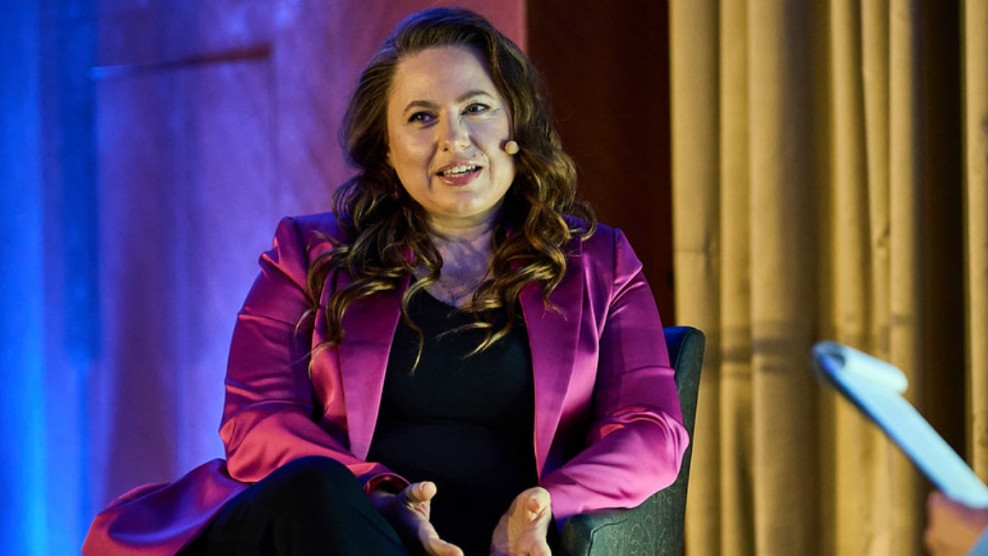
As a FIDE Commission for Women’s Chess we are thrilled to announce that icon of women’s chess, the best female chess player of all time, Judit Polgar has confirmed her presence at our WOMEN&CHESS&BALANCE Conference! WOMEN&CHESS&BALANCE is an upcoming conference organized by the FIDE Commission for Women’s Chess, dedicated to empowering women in the world of chess and beyond. The Conference will be held during the 45th FIDE Chess Olympiad 2024 in Budapest, Hungary on September 21. In addition to the legendary Judit Polgar the speakers will include CCO of Chess.com Daniel Rensch, FIDE Official Dana Reizniece-Ozola, advertising professional, manager of the legendary Viswanathan Anand – Aruna Anand, Vice President of the Global eSports Federation Dr Melita Moore, top event organizers like Norway Chess’s Director Kjell Madland, CEO of ChessWorld Ilya Merenzon, representatives from UNHCR and many more influential voices in the chess world. The event will feature a diverse range of topics, including “Sporty Strategists: Chess and Beyond”, “Management”, “Women’s Safeguard”, and “Building a Chess Tournament’s Brand”, “Social media management” and many others. This Conference is designed to benefit not only professional chess players, but also those working in related fields or those aspiring to enter the chess community. Date and time: September 21, 2024, 3-8:00 PMEvent: WOMEN&CHESS&BALANCE ConferenceLocation: InterContinental Hotel Budapest & ONLINEParticipation is free. The conference will be available online here:https://www.youtube.com/live/JmA6ndjCIg0 Registration: If you wish to attend in-person, you have to officially register, however if you want to take part in the Conference online the registration is not necessary – you will be able to follow everything through the above-mentioned link. To register, please visit wom.fide.com/womconference/ and fill out the form. See you at the Conference!
Chess, culture, music, football: Highlights from the Olympiad’s free day
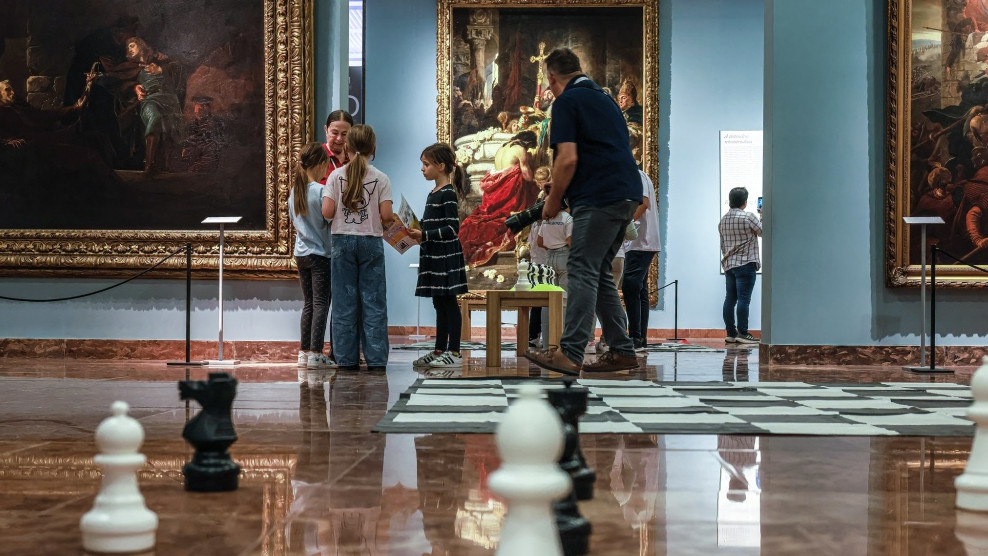
The only free day at the Chess Olympiad offers a perfect opportunity to rest, recharge, and gather thoughts before the second half of the tournament. It’s also a wonderful chance to explore Budapest and participate in various chess activities. The day was filled with chess events across the city. In the morning, filming for Juga’s unreleased chess song, “Queen Trap,” took place at the Hungarian Museum of Fine Arts. Juga, renowned in the chess world for her hit songs with chess themes, embarked on an ambitious project to highlight the best female chess players and women in chess roles—organizers, streamers, photographers, and arbiters. Participants included Alexandra Kosteniuk, Pia Cramling, Jovanka Houska, Natalia Zhukova, and many others. This artistic project, in collaboration with the FIDE Commission for Women’s Chess, will result in a short music film to be released on Juga’s channels. During the filming, a heartwarming moment occurred when Jorge proposed to Maria, and she said yes. Both play for Panama’s national teams at the Chess Olympiad. They met and bonded over chess when Maria moved to Panama from Venezuela. This beautiful moment can be seen on the @fidewomen Instagram channel, with the witty comment, “The queen got trapped.” Judit Polgar’s Global Chess Festival opened at the National Gallery. Over the past ten years, it has become a must-attend event, offering a full-day family experience centered around chess. The festival features games, workshops, chess tournaments, and more. This year’s festival patron is Ernő Rubik, the famous Hungarian inventor known for the Rubik’s Cube. Judit Polgar played a simul against eight communities, featuring creators and representatives from various fields. The legendary Polgar sisters—Susan, Sofia, and Judit—held a popular autograph session. Argentine chess prodigy, 10-year-old Faustino Oro, an international master with a 2434 FIDE rating, also visited the festival and participated in the activities. The festival will continue on the second day with the Educational Chess Summit at the Intercontinental Hotel. While many chess players explored the city, world champion Ding Liren and challenger Gukesh D had a significant engagement—a photoshoot and filming session for the upcoming World Championship match in Singapore. Their paths may cross again soon, as they could face each other on the chessboard in the highly anticipated India vs. China match in Round 7! After the photoshoot, the world champion headed to the football field to participate in a friendly football tournament for chess players. Many Olympiad participants joined in, divided into six teams: Americas, Europe, Asia, Africa, Hungary, and FIDE. After intense matches, Team Europe emerged victorious, with the Americas finishing second, Asia third, and FIDE fourth. The highlight of this wonderful day was a concert by chess grandmaster and Hungarian legend Lajos Portisch. At 87, he still sings opera arias. From 6 pm, he performed German, Italian, and Hungarian opera arias at the Petőfi Museum of Literature. Written by WGM Anna Burtasova Photos: Michal Walusza, Mark Livshitz and Mihály Nagy Official website: chessolympiad2024.fide.com
Opera and chess – Lajos Portisch celebrated 45th Chess Olympiad with an aria evening
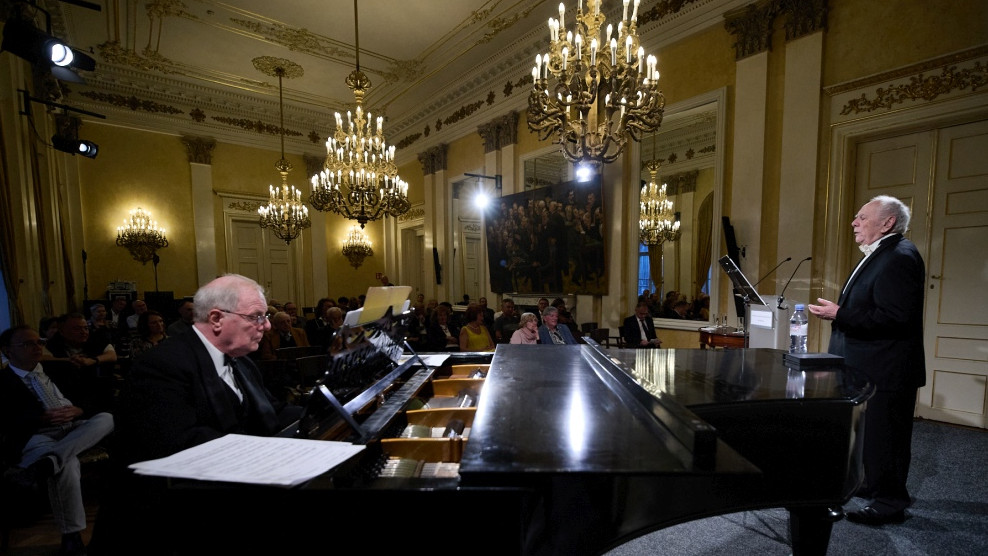
Lajos Portisch, the legendary Hungarian chess player who was awarded the title of the Sportsman of the Nation, held an aria evening on the free day of the 45th FIDE Chess Olympiad, on September 17 at the Petőfi Museum of Literature. The grandmaster’s aria repertoire was accompanied by a unique painting, as Antti Favén’s world-famous work The Chess Players was also on display. In addition to his Olympic and National Athlete titles, the 87-year-old international grandmaster has won nine Hungarian championships and has come close to the individual world championship final on several occasions. He has sat at the chess board 260 times in 20 Chess Olympiads, scoring a total of 176.5 points. Last year, he was inducted into the World Chess Hall of Fame, along with Judit Polgár. But Lajos Portisch, also known as the Hungarian Botvinnik, has another passion besides chess: singing. On September 17, the versatile, veteran athlete’s unique heroic baritone voice was on display to a wider audience at an aria recital in the Károlyi Palace’s Ceremonial Hall, the seat of the Petőfi Museum of Literature. The artist-player performed arias from operas by Mozart, Wagner, Puccini, Verdi, Leoncavallo, Erkel, Rossini, Bellini and Donizetti. Lajos Portisch could not have sung in an unconventional setting: the imposing Ceremonial Hall of the Károlyi Palace is itself capable of evoking the world of cultural salons, but the unique evening was made complete by Antti Favén’s painting The Chess Players. The artwork, a true rarity in the history of art and sport, was provided by the Nemes Gallery. The painting is one of the most influential works of the Finnish artist’s Paris period and also the largest chess-themed painting in the world. It depicts a scene from everyday life at the Café de la Régence in Paris. The café was already a centre of French chess in the 18th century, and it was a must for any chess player visiting the city. Through a friend, Antti Favén was introduced to the café by American chess master Frank Marshall, where he made sketches of visiting celebrities and sketched on paper the scenes around the chess tables in quick sketches. The Chess Players isFavén’s summary composition, which he composed based on his decades of experience in the chess circle. The work features legendary players such as Siegbert Tarrasch, Frank Marshall, David Janowsky, Amos Burn and Ossip Bernstein. The event was organized by the National Event Management Agency in cooperation with the Petőfi Museum of Literature and the Nemes Gallery, FIDE (International Chess Federation) and the Hungarian Chess Federation. Photos: Mihály Nagy
45th Chess Olympiad R07: India continues to shine, winning all matches
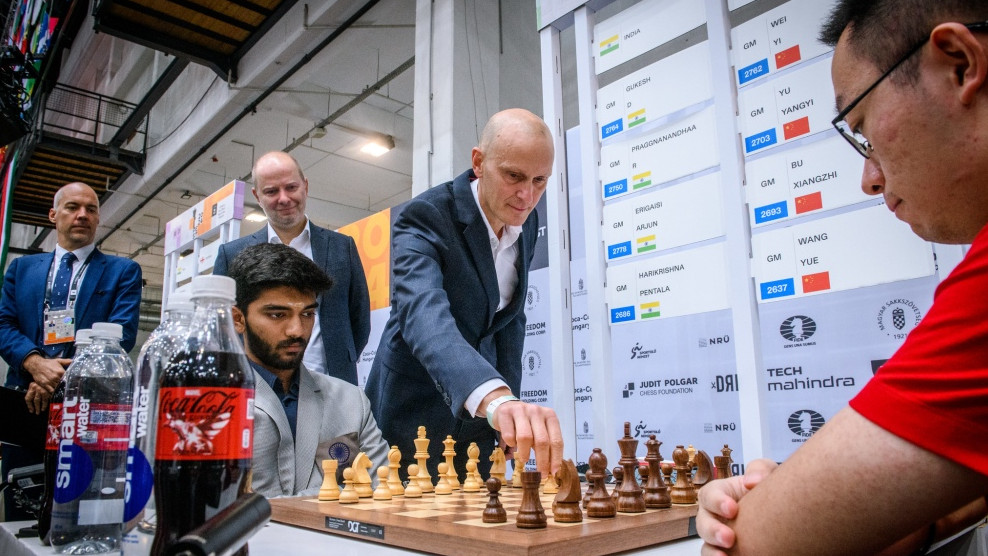
The first ceremonial move in the open section of 45th Chess Olympiad was made by Mr. László Bekefi, General Manager of Coca-Cola HBC Hungary, and Mr. Alexey Dmitrenko, Supply Chain Leader at Coca-Cola HBC Hungary. Coca-Cola, the official beverage partner, supplies the Olympiad with free soft drinks and water for players, media, and the organising team. This ceremonial move set in motion the most important match in the open section: India vs. China. The highly anticipated first board encounter between Gukesh D and Ding Liren did not happen. Although the two are set to play the world championship match in November, China allowed Ding Liren to rest for this match. Tournament commentator GM Peter Svidler had a strong opinion about this: “I don’t think you will find very many examples of the reigning World Champion not playing board 1 in an absolutely critical central match of the Chess Olympiad… If China wants to win this Olympiad, they need to win today. It is very difficult to take points off this Indian team. The fact that Ding Liren is not sitting down to play chess today after the rest day is, I think, quite significant.” The first game to finish in the match was a draw between Praggnanandhaa R and Yu Yangyi on board two. One of the intrigues of the round was whether Arjun Erigaisi, with a perfect 6/6 record so far, would continue his winning streak. Following the crazy complications in the middlegame, which were “all just forced”, as Arjun said after the game, Erigaisi, playing White, ended his winning streak by drawing with Bu Xiangzhi. It is worth noting that before going for a threefold repetition through a perpetual check, Bu thought for some 15 minutes, constantly checking on the other two games, trying to consider whether he might continue the game. “It’s only White who could, in fact, push,” commented Erigaisi. “If the situation on the other two boards was different, I might have needed to risk, but my teammates were doing fine.” As Pentala Harikrishna made a draw with Wang Yue, the game where India could hope for a win was Gukesh D vs. Wei Yi. For a long time, it looked like it would also finish in a draw. However, Black’s defending task was anything but easy. Finally, after an excruciating battle, on move 71, Black erred, and Gukesh didn’t let go of this chance. A narrow 2.5-1.5 win for India! “I thought I’ll press this forever and see what happens,” commented Gukesh after the game. “I couldn’t lose it, so there was no pressure on me.” Iran stopped the Vietnam miracle, confidently defeating them by 2.5-1.5. Three draws and Pouya Idani’s win on the last board elevated Iran to a clear second place. The team, headed by Parham Maaghsoodloo and Amin Tabatabaei, initially seeded 10th, will meet India in the next round. “They are a strong team, so we’ll just come and play some good chess!” said Gukesh. In the women’s section, the first move for Harika was made by H.E. Aref Hamad Al Awani, General Secretary of the Abu Dhabi Sports Council, and Hussein Abdullah Khoury, Chairman of the Abu Dhabi Chess Club. Abu Dhabi, United Arab Emirates, will host the 47th Chess Olympiad in 2028. With this, the crucial match between India and Georgia started. India has had an ideal tournament so far, winning all their matches. Divya Deshmukh, on board three, had been the hero of the team with 5.5 points in 6 games. This time, she made a draw, but her teammates Vaishali R and Vantika Agrawal took the flag and raised it high, winning their games. An amazing 3-1 victory against one of the favorites, Georgia, leaves no doubt that India means serious business to improve on their bronze finish in 2022! An important match between Poland and Ukraine in the women’s section ended in a draw. After Alina Kashlinskaya, on the first board, defeated Yuliia Osmak in a nerve-wracking time trouble, things looked bright for Poland. However, Ukraine struck back with a win by Nataliya Buksa against Oliwia Kiolbasa on the third board. It means that India is now two match points ahead of the pursuers. The Chess Olympiad broke another record in Round 7. Syria was the last team to arrive and get paired in the open section. It brings the total to 188 teams, setting an absolute record for the Chess Olympiads. In 2022 in Chennai, there were 186 teams in the open section. The women’s tournament also boasts the highest participation numbers: 169 teams are taking part, compared to 159 in Chennai. Position of the day: Yuliia Osmak (Ukraine, 2471) – Alina Kashlinskaya (Poland, 2490) Black to move 28…Be4! Black is winning, but really needs to simplify and extinguish White’s kingside attack. 29.Rxe4 Nxd2 30.Rf4 Qb8, and soon (not without more tactical complications) Black set her queenside pawns in motion and won the game. 0-1 Results of the top matches: Open: (12) India 2.5-1.5 China (11)(11) Iran 2.5-1.5 Vietnam (11)(10) Uzbekistan 3-1 Ukraine (10)(10) Serbia 3-1 Netherlands (10)(10) Armenia 2.5-1.5 England (10)(10) Lithuania 1.5-2.5 Hungary (10)(10) France 2-2 Georgia (10) Women: (12) India 3-1 Georgia (11)(10) Ukraine 2-2 Poland (11)(10) Azerbaijan 1-3 Kazakhstan (10)(10) Armenia 2-2 USA (10)(10) Mongolia 2-2 Germany (10)(10) Spain 1.5-2.5 France (10) Top standings after 7 rounds: Open: 1. India – 142. Iran – 133-6. Uzbekistan, Hungary, Armenia, Serbia – 12 Women 1. India – 14 2-4. Poland, Kazakhstan, France – 12 Full results and standings: Chess-results.com – 45th Chess Olympiad Written by WGM Anna Burtasova Photos: Michal Walusza, Mark Livshitz and Maria Emelianova See more Round 7 photos on FIDE Flickr Official website: chessolympiad2024.fide.com

